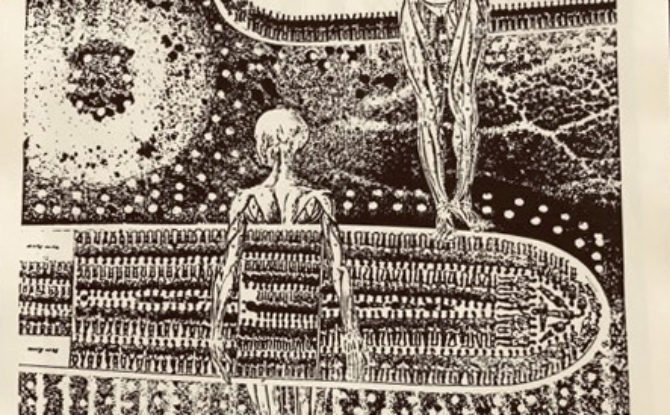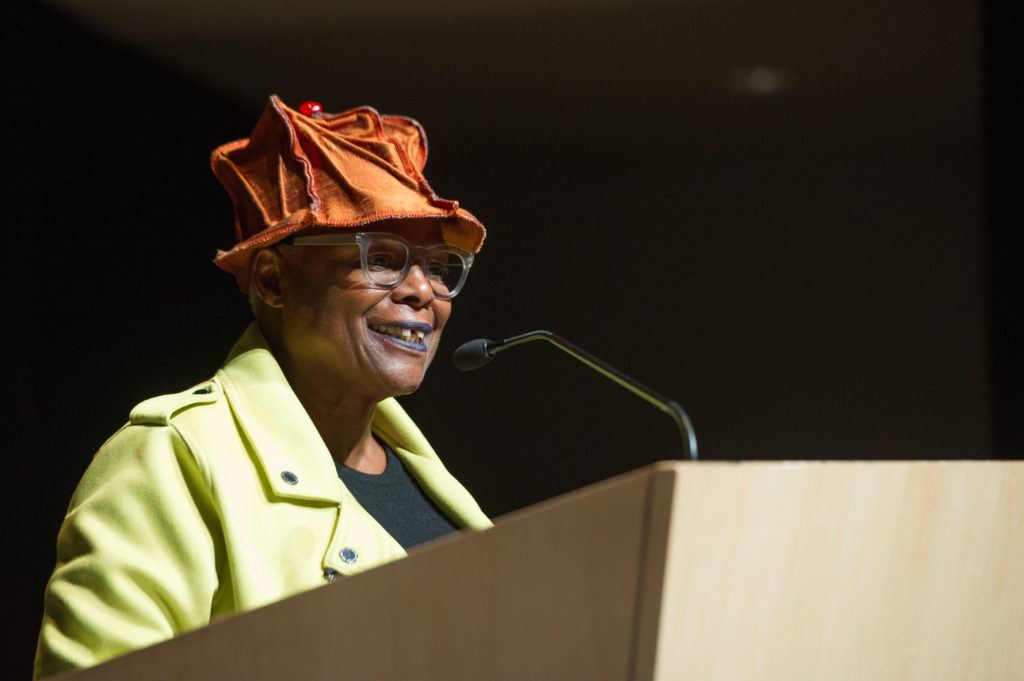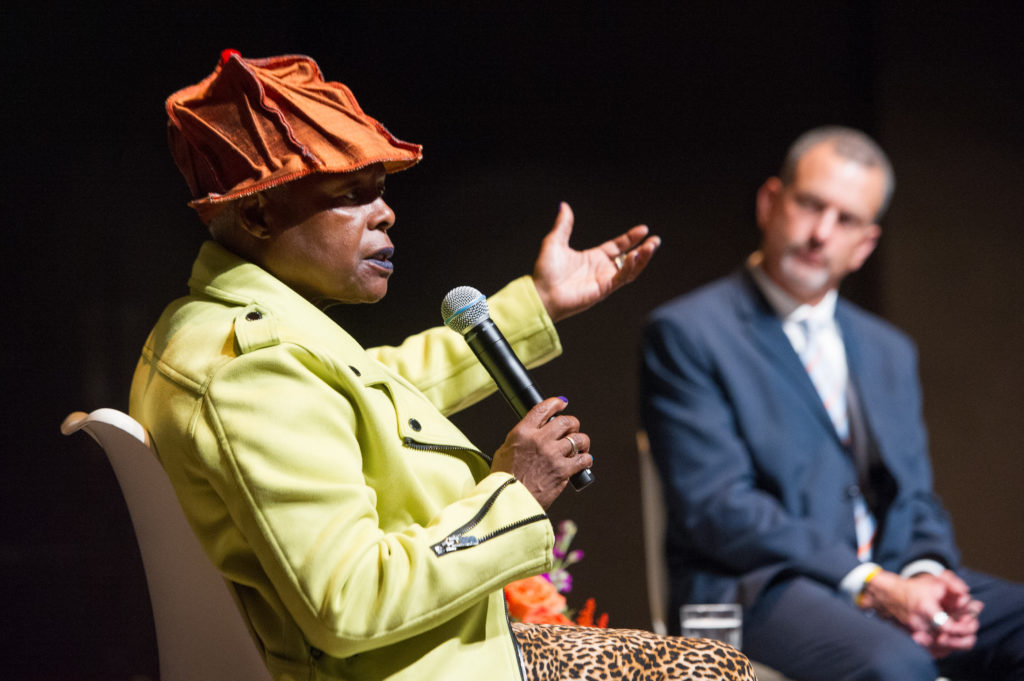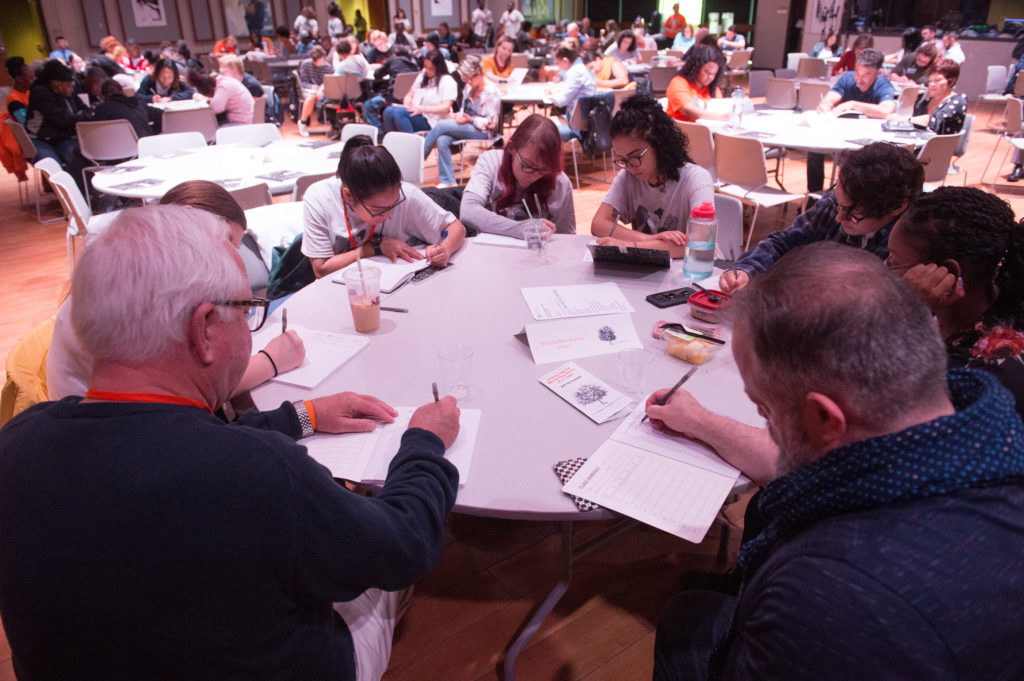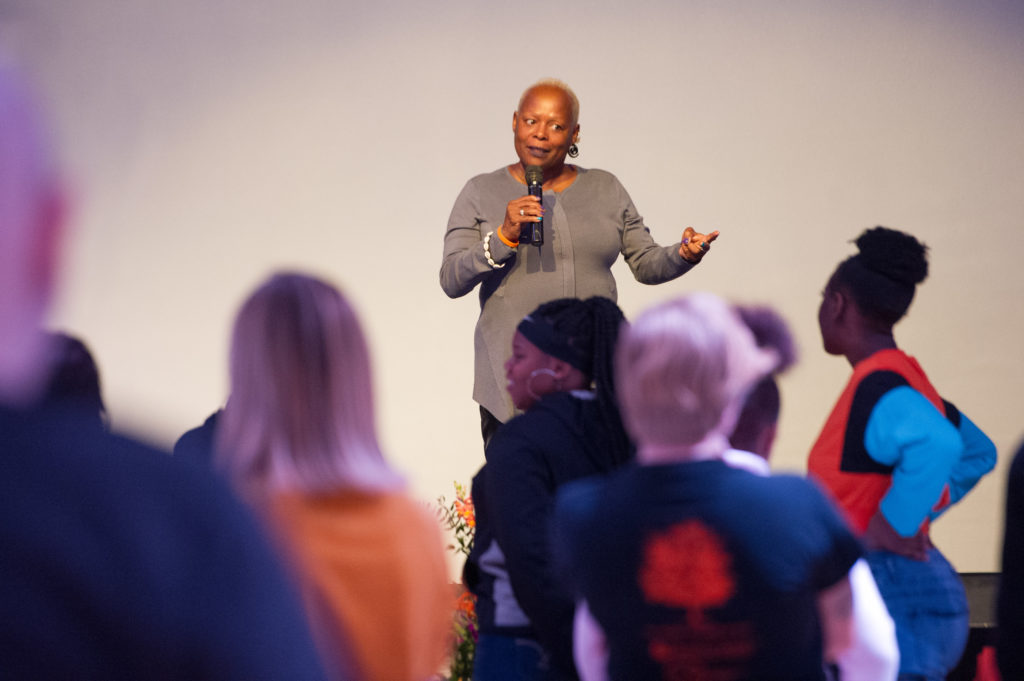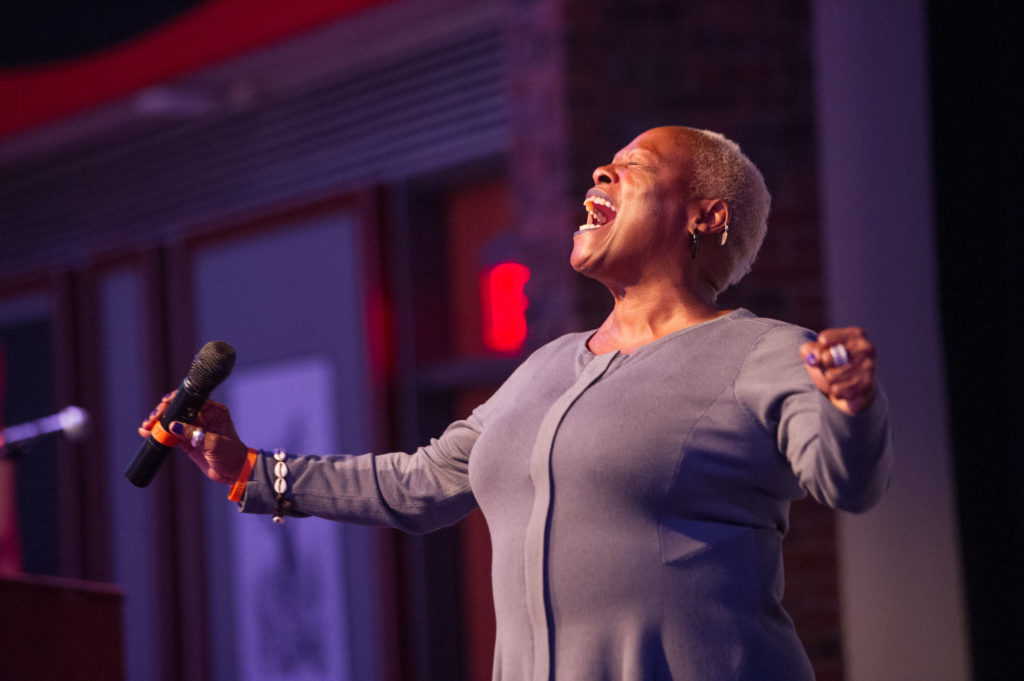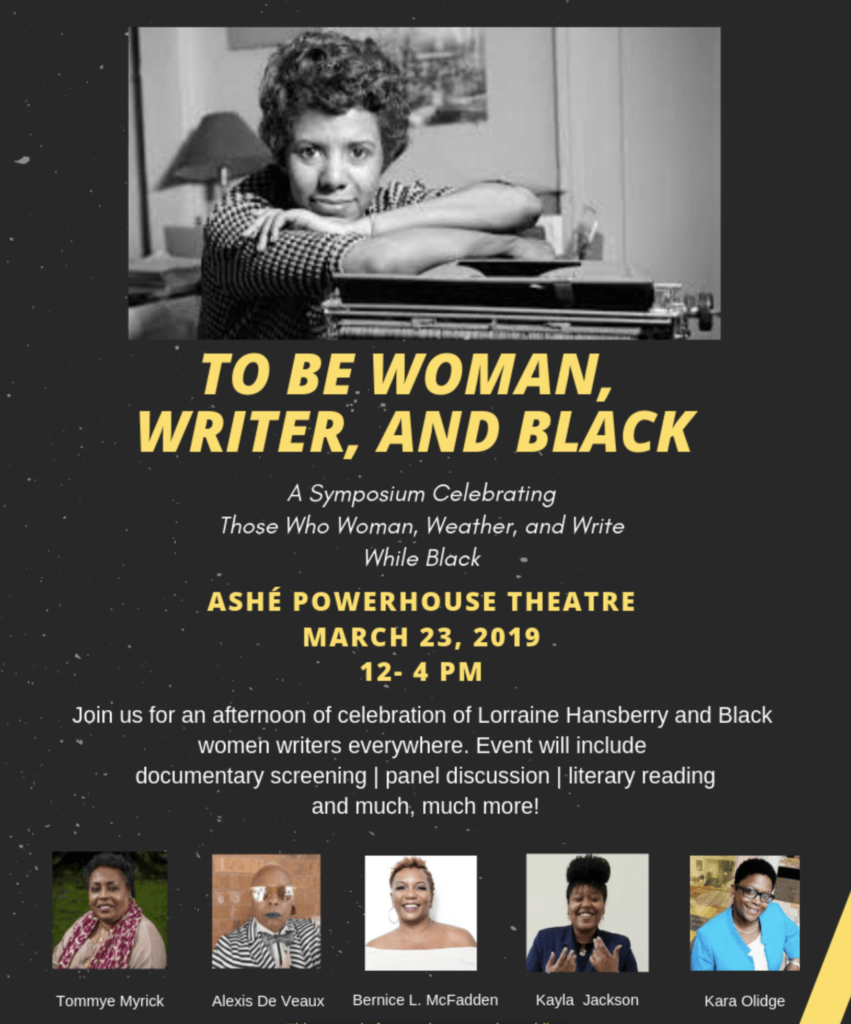Memory and the Archive 1619-2019 Past/Present/ Future was the theme for the 2019 Black Portraiture event held at New York University.
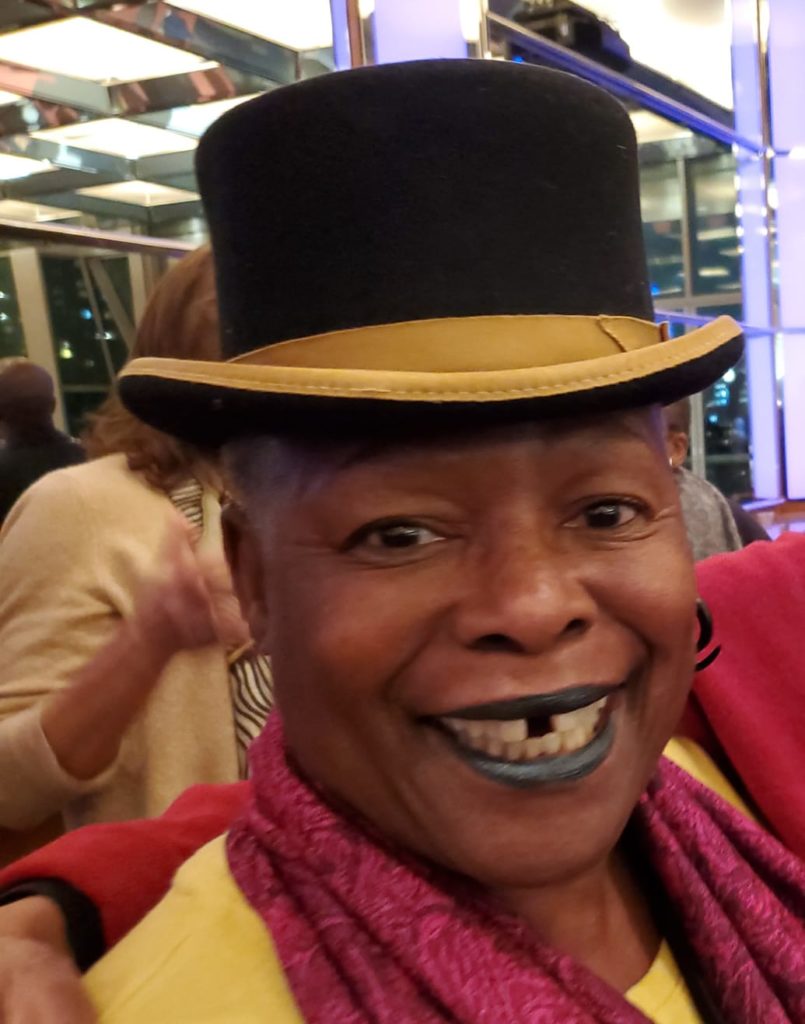
Dr Alexis De Veaux © Sokari Ekine, 2019
The Afterlife of Slavery: Visual, Textual, Sonic Arts and Archives of Catastrophic Memory featured presentations by Alexis De Veaux, University of Buffalo, Professor Emerita and Independent Scholar, Cheryl Clarke, Poet and Jenna Wortham, The New York Times Magazine
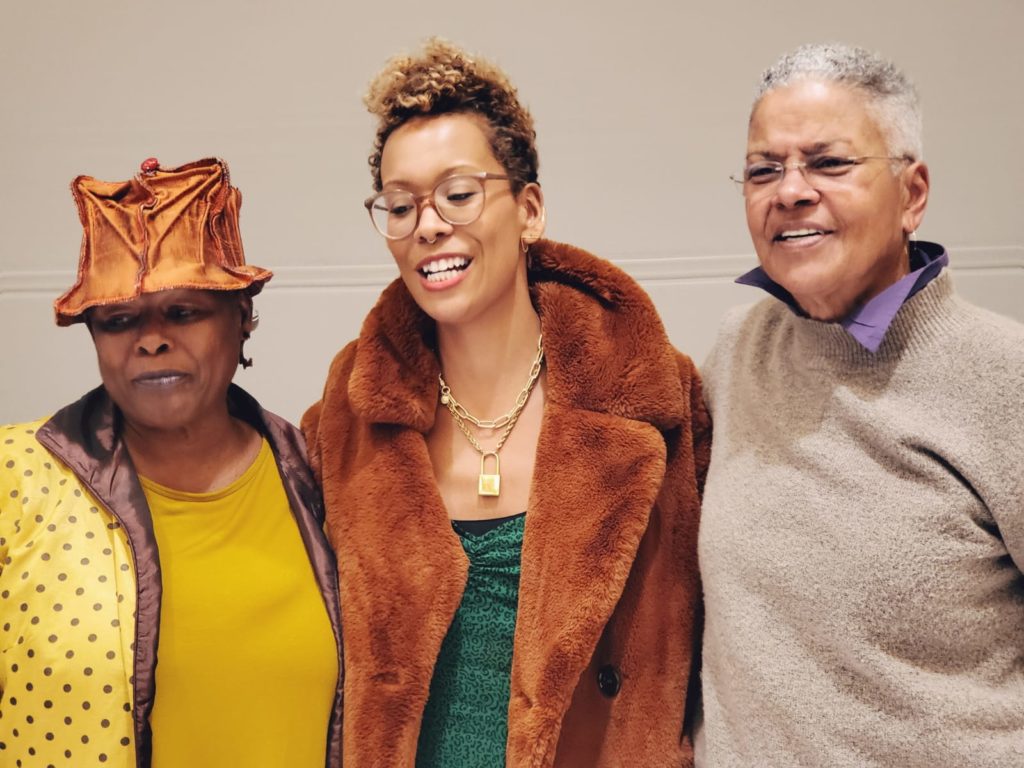
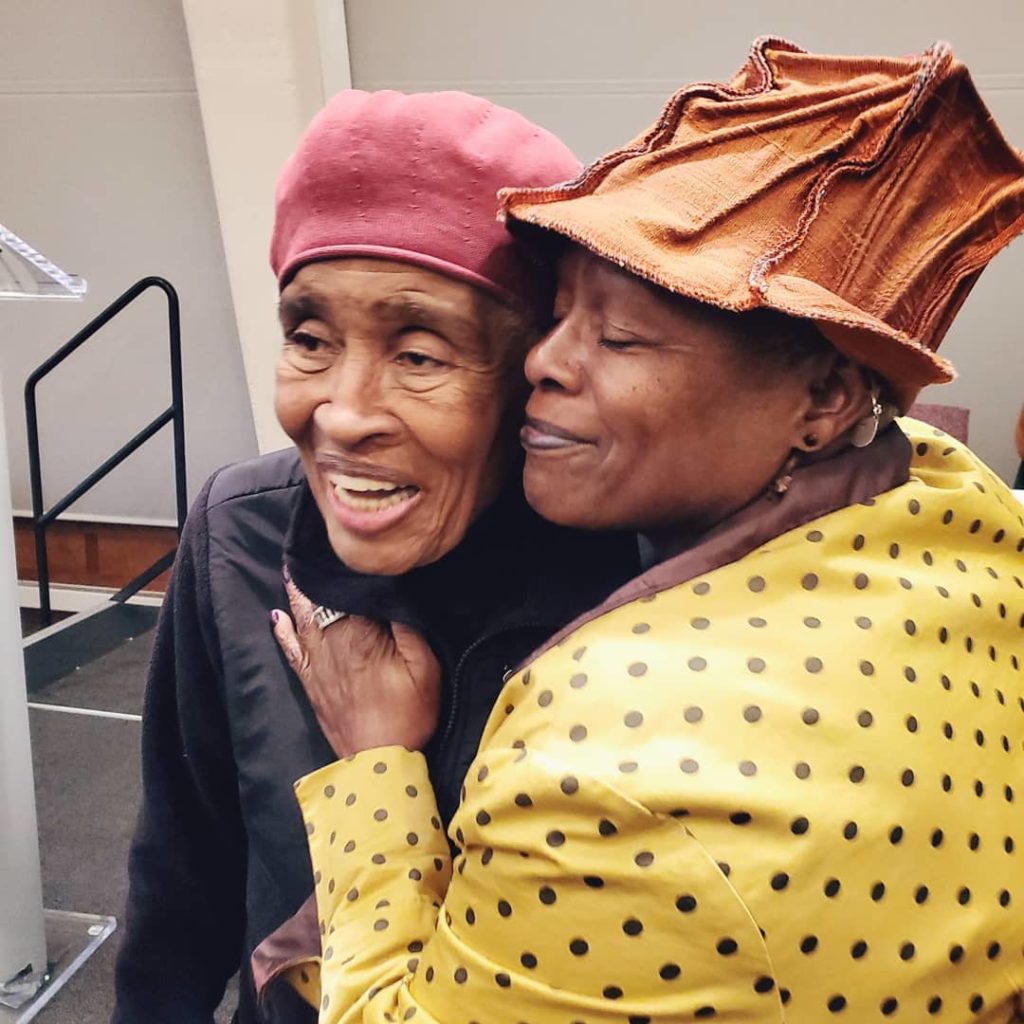
Dr De Veaux with Valerie Maynard ©Sokari Ekine, 2019
The panel, “‘The Afterlife of Slavery:’ Visual, Textual, Sonic Arts and Archives of Catastrophic Memory” is set against the backdrop of Saidiya Hartman’s articulation of “the afterlife of slavery” as the enduring calculus imperiling present-day black life. This focus is nourished by Kara Walker’s visual and sonic reading of domestic slavery in the United States as indicative of “a Catastrophe for millions.” Thus the panel forwards critical discussions of visual, textual, and sonic works by black artists engaged, across time, with the practice of re-rendering and re-imagining the impact of transatlantic enslavement as a catastrophic archive of persistent black memory.
Alexis De Veaux, Professor Emerita/ Independent Scholar will offer a critical reading of visual artist Valerie Maynard’s “un-named” spectral series of visual renderings of the Middle Passage as a “lost” archive of both catastrophic memory and catastrophic belonging, ‘Lost Found: Catastrophe and Memory in the Work of Valerie Maynard’. This paper offers a critical reading of the iconic visual artist Valerie Maynard’s “un-named” spectral series of visual renderings of the Middle Passage as a “lost” archive of both catastrophic memory and catastrophic belonging.
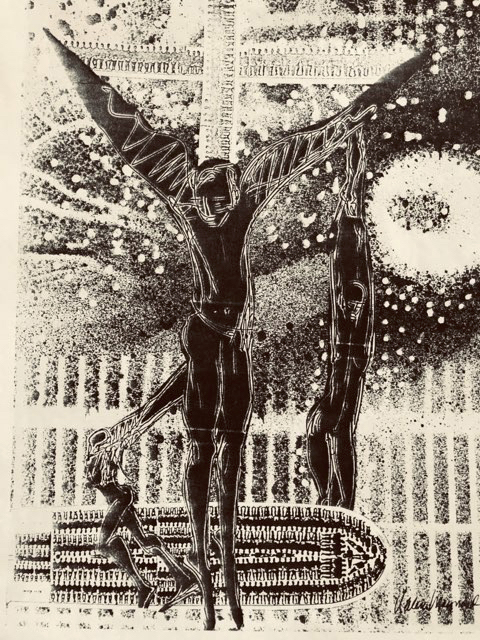
©Valerie Maynard 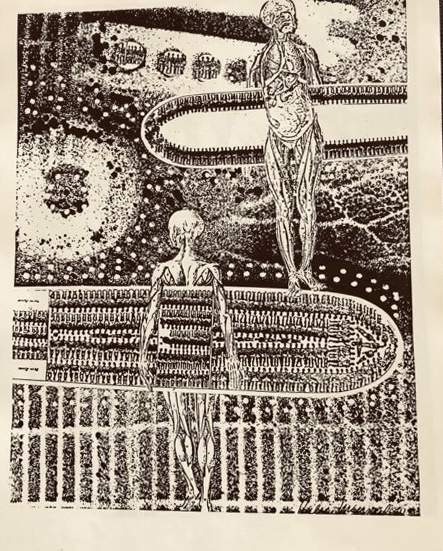
©Valerie Maynard 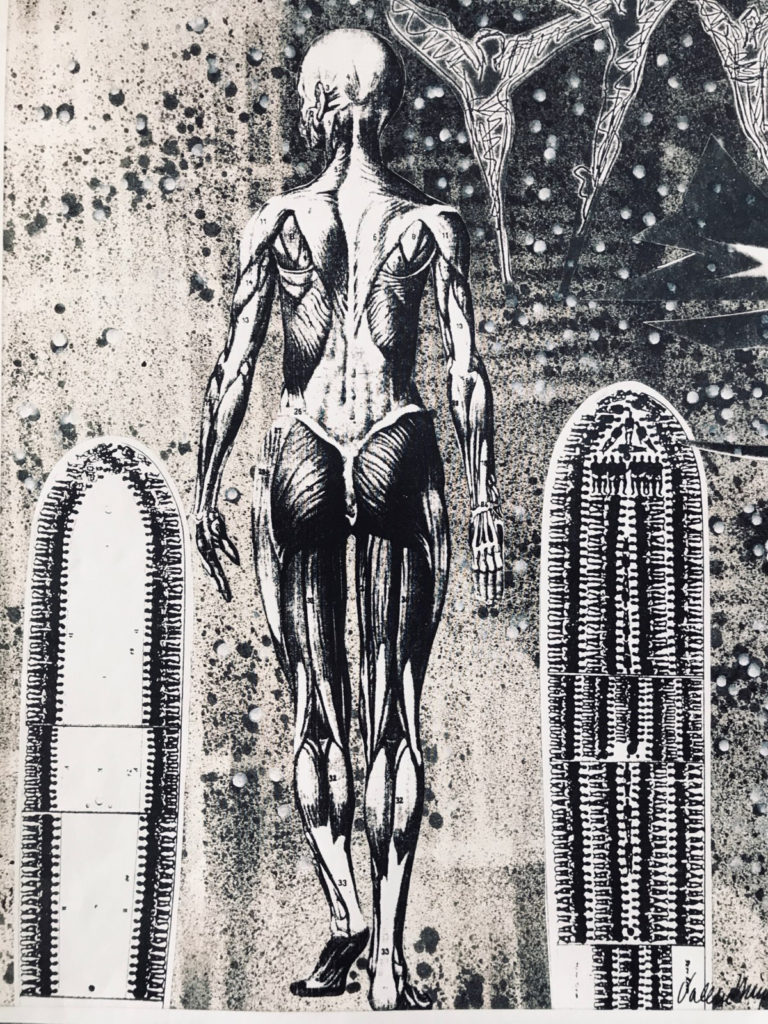
©Valerie Maynard
In “One,” the artist draws our attention to a barrier, a gate like structure, that symbolizes this ancestral enslavement. And she draws attention to three figures foregrounded against it. With them, she informs our memory of what enslavement did. Enslavement turned captured Africans, humans, into hybrid creatures. It denied and brutalized their humanity, without question. It deformed and dismembered them. Maynard narrates this hybridity, framed by abject brutalization, in two small figures, especially.
Cheryl Clarke will explore the poetry of Natasha Tretheway as Tretheway’s work memorializes slavery by historicizing its “everlasting” effects on black culture and subjectivity. “there to here” Natasha Tretheway’s poem, “Theories of Time and Space,” from her celebrated Native Guard (2006), exposes the poet’s approach to poeticizing historical portraits and paintings (ekphrastic) of black people, specifically mixed race black women, in captivity or various forms of oppressive servitude, including prostitution. In Bellocq’s Ophelia (2002) and Thrall (2012), Tretheway’s getting from “here” (author stance) to “there” (subject/ “Participant”) is historical and personal distance, i.e.; it is the interstices of space, “the space of space.” The cover art of both works utilize reproductions of photographs and “Casta” paintings; and images of prostitutes,
Jenna Wortham will make a case for examining the processes inherent to black archives primarily as opportunities to resist the ephemerality of social media and digital transactions, in order to preserve and create a blueprint for engaging the black “present” in a “future” situated in the black “past.”

